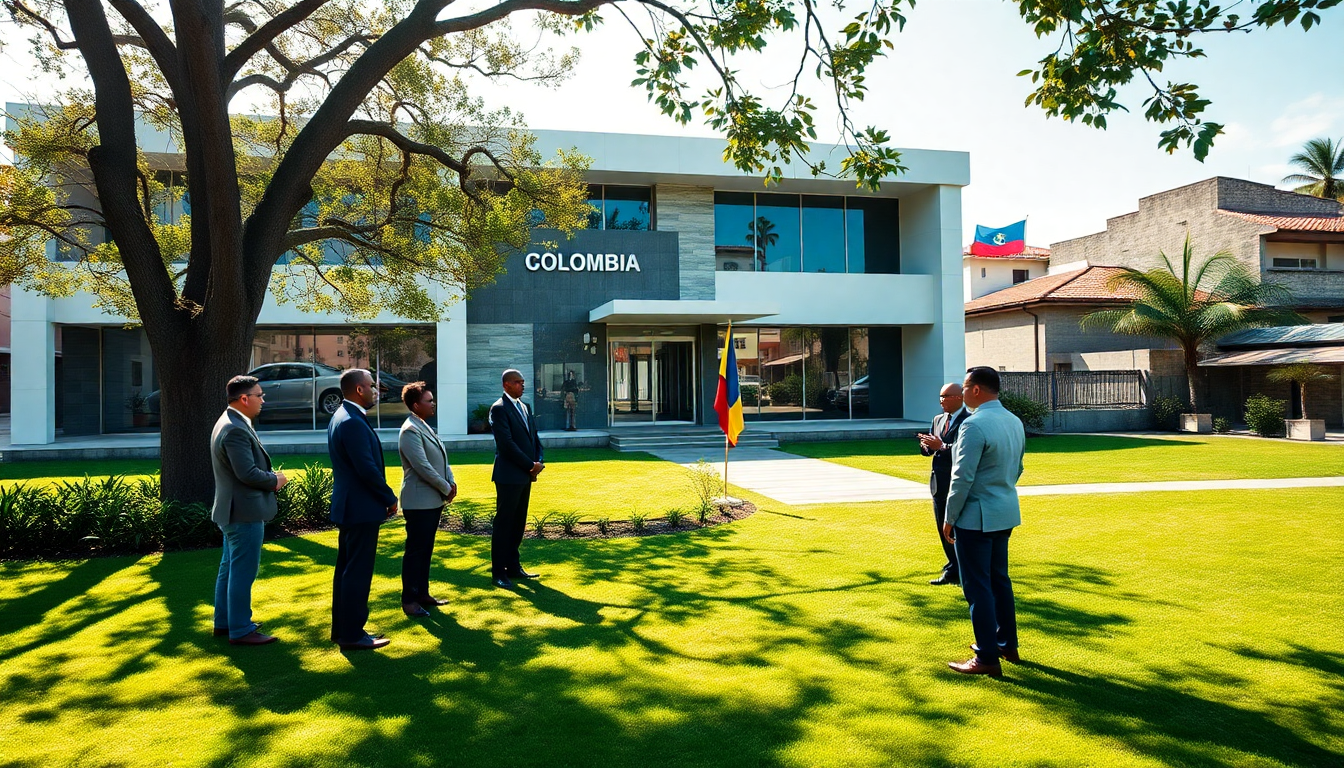Table of Contents
In a remarkable example of international teamwork, Colombian President Gustavo Petro has made his second trip to Haiti this year, highlighting the urgent need to tackle the rising violence fueled by gangs in the region. This visit not only reinforces Colombia’s commitment to supporting Haiti but also marks an important milestone in diplomatic relations, with the opening of a new embassy in Port-au-Prince.
Why the new embassy matters
During his visit, President Petro officially announced the establishment of a Colombian embassy in Haiti, a move that symbolizes a deepening connection between the two nations. This diplomatic presence comes at a critical moment when Haiti is wrestling with pervasive gang violence, with a staggering 90% of Port-au-Prince reportedly under gang control.
Petro’s words during the embassy inauguration, “The time has come to truly unite,” reflect a broader vision of cooperation aimed at fostering stability in the Caribbean nation.
This embassy will act as a strategic base for enhancing bilateral relations, focusing on key areas like security, commerce, education, and agriculture.
Colombia’s multifaceted approach signals its intention to play a crucial role in Haiti’s recovery and development efforts. But what does this mean for ordinary Haitians?
Tackling security and drug trafficking issues
Discussions around security were a major focus of Petro’s visit.
The Colombian government has committed to strengthening Haiti’s security forces, offering training for Haitian police to help combat the rampant gang violence that has plagued the country. This partnership is essential, especially as Haiti’s National Police struggle with limited resources and personnel.
Can you imagine trying to restore order under such conditions?
Additionally, this visit follows a significant operation by Haitian authorities that led to the confiscation of over 1,000 kilograms of cocaine and the deaths of four suspected traffickers. Such incidents highlight the pressing need for collaborative efforts to tackle drug trafficking, a critical issue for both nations.
Colombian officials have also facilitated visits for Haitian delegations to explore defense capabilities, further emphasizing their commitment to bolster Haiti’s law enforcement capacity.
The humanitarian toll of gang violence
Gang violence in Haiti is not just a security problem; it’s also triggered a humanitarian crisis. With over 4,800 reported deaths and around 1.3 million people displaced in recent years, the situation is dire. The UN has shared alarming figures that illustrate this crisis, underscoring the necessity for urgent action to restore safety and stability. How can we stand by when so many lives are affected?
Petro’s administration understands that tackling these challenges requires a comprehensive strategy that combines immediate security measures with long-term development solutions. This includes investments in infrastructure, education, and economic opportunities, aiming to help communities thrive despite the threats posed by gangs.
What’s next for Colombian-Haitian relations?
As both nations look to the future, the opening of the Colombian embassy in Haiti marks a hopeful chapter in their diplomatic relationship. With ongoing discussions about joint security initiatives and economic partnerships, there’s potential for significant progress. The commitment to helping Haiti recover from its current challenges could not only strengthen their bilateral relationship but also contribute to regional stability in the Caribbean. So, what does this mean for the average citizen in both countries?
Ultimately, the success of these initiatives will hinge on sustained engagement and cooperation between Colombia and Haiti, alongside the support of the international community. The journey ahead will be tough, but with proactive measures, both nations can work towards a safer, more prosperous future. Are we ready to witness a transformation in this troubled region?





